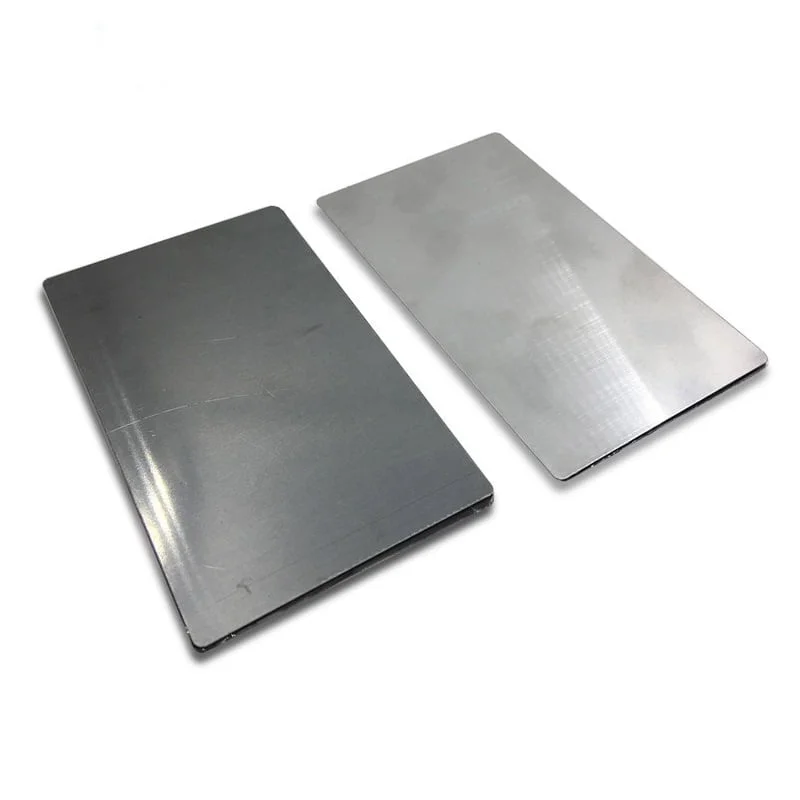
Introduction
Duplex stainless steels are a special class of stainless steels that are known for their unique microstructure, which includes a combination of austenite and ferrite phases. This unique structure gives duplex steels exceptional mechanical properties and corrosion resistance, making them suitable for various challenging environments. Two of the most commonly used duplex stainless steels are 2205 and 2507. In this article, we will provide an in-depth comparison of these two materials, focusing on their chemical compositions, mechanical properties, corrosion resistance, weldability, and applications.
1. Chemical Composition
The chemical composition of duplex stainless steels is crucial as it directly influences their performance in various environments.
2205 Duplex Stainless Steel
- Chromium (Cr): 22%
- Nickel (Ni): 5%
- Molybdenum (Mo): 3%
- Iron (Fe) and other elements: The balance
The high chromium content provides excellent corrosion resistance, particularly against pitting and crevice corrosion. The presence of molybdenum further enhances corrosion resistance, especially in more aggressive environments.
2507 Duplex Stainless Steel
- Chromium (Cr): 25%
- Nickel (Ni): 7%
- Molybdenum (Mo): 4%
- Iron (Fe) and other elements: The balance
2507 has a higher chromium and molybdenum content than 2205, resulting in superior corrosion resistance characteristics. This makes 2507 more suitable for environments that may cause severe corrosion.
2. Mechanical Properties
The mechanical properties of duplex stainless steels, such as tensile and yield strength, are critical factors for their performance in structural applications.
Tensile Strength
- 2205: Generally ranges between 620 – 750 MPa. This tensile strength makes it suitable for many applications in oil and gas as well as chemical processing industries.
- 2507: Has a higher tensile strength, usually between 750 – 1000 MPa. This characteristic makes it ideal for applications where high strength is essential.
Yield Strength
- 2205: Yield strength typically ranges from 450 – 550 MPa. This illustrates its ability to withstand stress before deforming, making it a reliable choice in many structural applications.
- 2507: Exhibits a yield strength of approximately 600 – 800 MPa, offering enhanced performance under high-stress conditions.
Hardness
Both grades exhibit high hardness levels, with 2507 generally being harder due to its higher chromium and nitrogen content.
3. Corrosion Resistance
One of the primary advantages of duplex stainless steels over other types of steel is their exceptional corrosion resistance.
2205 Duplex Stainless Steel
2205 has excellent resistance to pitting and crevice corrosion, particularly in chloride environments. Its resistance is enhanced by its balanced microstructure and the presence of molybdenum.
2507 Duplex Stainless Steel
2507 excels in aggressive environments, thanks to its higher content of chromium and molybdenum. It outperforms 2205 in preventing pitting and crevice corrosion, making it ideal for use in seawater and other harsh chemicals.
4. Weldability
Weldability is crucial for materials used in construction and manufacturing processes.
2205 Duplex Stainless Steel
2205 is considered to have good weldability. However, care must be taken during welding to avoid the formation of detrimental phases and ensure that the welds maintain properties similar to the base material.
2507 Duplex Stainless Steel
2507 has fair weldability. Due to its higher alloy content, it is more susceptible to thermal cracking during the welding process. Special welding procedures and filler materials are often used to ensure strong and durable welds.
5. Applications
Understanding the applications is vital for selecting the right material for specific environments and industries.
Applications of 2205
- Oil and Gas Industry: Used in pipelines, vessels, and storage tanks where resistance to corrosion and high strength are necessary.
- Chemical Processing: Suitable for heat exchangers, pressure vessels, and other equipment where aggressive chemicals are handled.
- Marine Applications: Utilized in applications exposed to seawater but where extreme conditions are not prevalent.
Applications of 2507
- Desalination Plants: Highly effective in environments with a high concentration of chlorides.
- Oil and Gas Sector: Used in subsea applications due to its high strength and corrosion resistance.
- Marine Construction: Suitable for components exposed to seawater, ensuring longevity and reliability in harsh aquatic environments.
- Petrochemical Industry: Employed in structures and vessels that undergo high-pressure and high-temperature processes.
6. Cost Considerations
When choosing between 2205 and 2507, cost is an essential factor to consider. Generally, due to the higher alloy content, 2507 is more expensive than 2205. This could influence decision-making, especially for large-scale projects where budget constraints are critical.
7. Summary of Comparison
| Feature | 2205 Duplex Stainless Steel | 2507 Duplex Stainless Steel |
|---|---|---|
| Chemical Composition | 22% Cr, 5% Ni, 3% Mo | 25% Cr, 7% Ni, 4% Mo |
| Tensile Strength (MPa) | 620 – 750 | 750 – 1000 |
| Yield Strength (MPa) | 450 – 550 | 600 – 800 |
| Corrosion Resistance | Good | Excellent |
| Weldability | Good | Fair |
| Applications | Oil & gas, chemical processing | Desalination, petrochemical |
| Cost | Lower | Higher |
Conclusion
Both 2205 and 2507 duplex stainless steels offer significant benefits, including high strength and resistance to corrosion. The choice between these two materials largely depends on the specific requirements of the application, including environmental conditions, mechanical demands, and budget constraints. While 2205 is suitable for many applications, 2507 provides superior performance in highly corrosive environments. Understanding these distinctions will help engineers and decision-makers select the right material for their projects.
This article provides a detailed overview of 2205 and 2507 duplex stainless steels, covering key areas that influence material selection. Please let me know if you need any further information or adjustments!
